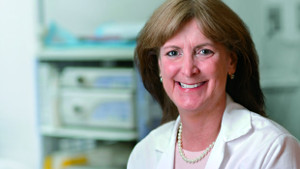PCORI approves Group Health for $2.8 million research funding award
With Patient-Centered Outcomes Research Institute support, Dr. Beverly Green will test how best to confirm new hypertension cases
SEATTLE—A research team at Group Health Research Institute has been approved for a $2.8 million funding award by the Patient-Centered Outcomes Research Institute (PCORI) to compare three methods for measuring blood pressure (BP) for confirming a new diagnosis of hypertension (BP-CHECK). The principal investigator is Beverly B. Green, MD, MPH, a Group Health Physician and Group Health Research Institute associate investigator.
Since its founding nearly 70 years ago, Group Health has looked to innovations to pursue a mission to deliver quality health care. Today, Group Health and its Group Health Research Institute are known for using evidence-based medicine to provide its more than 625,000 members with some of the nation’s best health care and health plans.
How best to diagnose hypertension
Almost one in three Americans have hypertension, a leading risk factor for heart and blood vessel disease, which is the most common cause of avoidable death and disability in the United States. Hypertension is usually diagnosed in a medical office when a patient has blood pressure (BP) that is high for several measurements. But about 30 percent of patients with high BP in clinic have normal BP outside of clinic. This is called “white coat hypertension.”
“Correct diagnosis of hypertension is important to prevent strokes, heart attacks, and heart failure—and also to avoid making people worry or take medicines when they don't need to,” Dr. Green said.
To avoid misdiagnosis of hypertension, the U.S. Preventive Services Task Force (USPSTF, which makes national recommendations about disease screening) recommends that people have 24-hour ambulatory BP monitoring (a cuff and BP monitor worn for 24 hours with measurements taken every 30 minutes during the day and every 60 minutes at night), with home BP monitoring over several days as an alternative. But most patients have never heard of ambulatory BP monitoring, and physicians rarely order it. Doctors sometimes use home BP, but not according to recommended guidelines. BP kiosks, for example at drugstores, offer another option. Newer models are accurate and easy to use.
BP-CHECK will identify Group Health patients aged 18-85 with high BP at their last clinic visit and at a screening visit (510 patients) to one of three groups: (1) clinic BP, (2) home BP, or (3) kiosk BP measurements for confirming a new diagnosis of hypertension. It will compare the accuracy and acceptability (comfort and convenience) of each method compared to 24-hour ambulatory BP monitoring. “Our study team includes patients, providers, leaders, and experts who will help as advisors to assure our study is done well and helps patients and health care providers to improve the care of high BP,” Dr. Green said.
“We are thrilled to work on behalf of PCORI to further research on use of blood pressure checks in the new diagnosis of hypertension,” said Eric B. Larson, MD, MPH, Group Health vice president for research and Group Health Research Institute executive director. “The outcome of this study promises to help Group Health members and all Americans to learn better ways to improve their health.”
“This project was selected for PCORI funding not only for its scientific merit and commitment to engaging patients and other stakeholders, but also for its potential to fill an important gap in our health knowledge and give people information to help them weigh the effectiveness of their care options,” said PCORI Executive Director Joe Selby, MD, MPH. “We look forward to following the study’s progress and working with Group Health Research Institute to share the results.”
BP-CHECK was selected for PCORI funding through a highly competitive review process in which patients, clinicians, and other stakeholders joined clinical scientists to evaluate the proposals. Applications were assessed for scientific merit, how well they will engage patients and other stakeholders, and their methodological rigor among other criteria.
Dr. Green’s award has been approved pending completion of a business and programmatic review by PCORI staff and issuance of a formal award contract.
PCORI
PCORI is an independent, nonprofit organization authorized by Congress in 2010. Its mission is to fund research that will provide patients, their caregivers, and clinicians with the evidence-based information needed to make better-informed healthcare decisions. For more information about PCORI’s funding, visit www.pcori.org.
About Kaiser Permanente
Kaiser Permanente is committed to helping shape the future of health care. We are recognized as one of America’s leading health care providers and not-for-profit health plans. Founded in 1945, Kaiser Permanente has a mission to provide high-quality, affordable health care services and to improve the health of our members and the communities we serve. We currently serve more than 12.4 million members in eight states and the District of Columbia. Care for members and patients is focused on their total health and guided by their personal Permanente Medical Group physicians, specialists and team of caregivers. Our expert and caring medical teams are empowered and supported by industry-leading technology advances and tools for health promotion, disease prevention, state-of-the-art care delivery and world-class chronic disease management. Kaiser Permanente is dedicated to care innovations, clinical research, health education and the support of community health. For more information, go to: kp.org/share.
Media contact
For more on Kaiser Permanente Washington Health Research Institute news, please contact:
Bianca DiJulio
bianca.s.dijulio@kp.org
206-660-8333
After-hours media line: 206-448-4056
healthy findings blog

How a physician-scientist studying blood pressure became a patient too
Dr. Beverly Green, PCORI-funded BP-CHECK leader, reflects on her professional interest in hypertension getting up close and personal
Read it in Healthy Findings.



